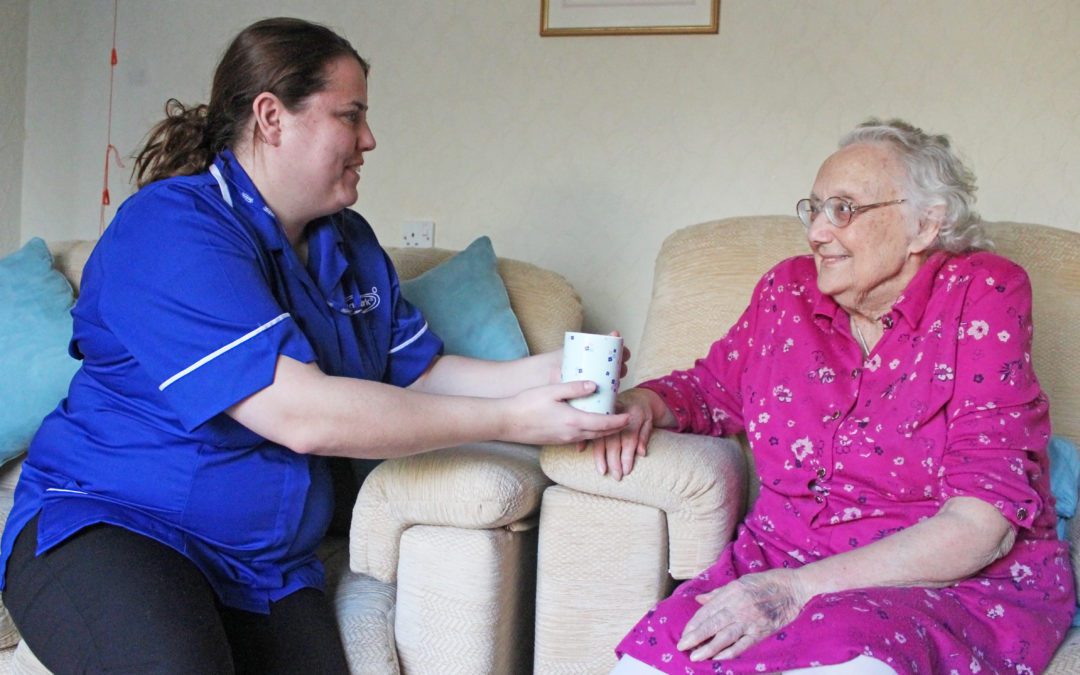If your loved one is looking for a little more support in their own home, you might want to talk to them about live-in care. This involves a professional carer moving into the home to help with personal care and a range of domestic tasks. It’s a great option for those who can, and want, to remain living independently and aren’t so keen to move into a care home.
In this article, we take a look at some reasons why you might want to consider live-in care for a family member.
Tasks that a live-in carer can help with
Firstly, here are some everyday tasks and duties that a live-in carer will be able to handle:
- Medication reminders
- Getting dressed and ready for the day
- Personal hygiene
- Household cleaning and general up-keep
- Cooking and meal preparation
- Mobility assistance
- Going to the shops and running errands
- Companionship
Does your loved one need help with any of these activities? A live-in home care worker will be able to provide them with bespoke support based on their specific needs. They can be there whenever your loved one needs them. However, if assistance is only needed for a few tasks, 24/7 live-in care may not be necessary or desired. Instead, daily or regular home visits might be a more suitable arrangement.
When is live-in care needed?
If your loved one finds the above activities difficult, it might be time to consider at-home care. This might be due to a recent medical diagnosis or simply old age.
However, if they only find a few tasks problematic at certain times of the day, it might be a better option for someone to visit them at regular times each day. On the other hand, if they require lots of support or very frequent support, it might be time to consider live-in care.
Some form of professional care is often required as an individual reaches old age. However, there are lots of different care options to choose from. Live-in care is just one, but it is often preferable for individuals who have significant care needs but want to continue living independently.
It’s hard to let go of the familiarity and comfort of your home, move away from family and friends, and enter a facility where you’re reliant on others. Needless to say, care homes aren’t for everyone. When residential care isn’t the preferred choice but round-the-clock care is needed, live-in care is certainly an option to consider.
Who could benefit from live-in care?
Live-in care is suitable for those with a variety of care needs — including those living with dementia, those who have recently suffered from a stroke, and individuals who have recently left hospital. Unsurprisingly, people often find it easier to recover or get back into the swing of normal life when they’re in an environment they know and feel comfortable in.
Perhaps your loved one is already receiving care visits, but these once or twice a day drop-ins are no longer sufficient. Would a permanent carer be the next logical step? Maybe they live with a partner who also has care needs or can’t provide care themselves. A live-in carer could mean the continuation of home life together.
If you have a family member who has recently moved into a care home but is struggling to settle in, consider whether live-in care might be a better arrangement for them. It can be difficult to adapt to living with so many other people and getting into a new routine. While they probably can’t just move back home and continue living on their own, live-in care might be a viable way forward.
Are you a carer yourself? If you’re currently meeting all of your loved one’s care needs but know you can’t continue to provide the required level of support into the future, a qualified home carer will be able to take the weight off your shoulders. Even if you want to continue providing some care for your loved one, you can work out a shared schedule.
Caremark home care services
If your loved one is based in Ireland and you want to learn more about live-in care options, contact our friendly team at Caremark for a free consultation. Learn more about us or see our other home care services, such as everyday care or companionship care.
tbShould you choose our live-in care services, we’ll ensure that your loved one receives the support that they need from an experienced and friendly member of staff. After an in-depth consultation, we’ll create a live-in care plan to make sure we cover everything you and your loved one need.
Still unsure about whether live-in care is right for your loved one? Give us a call to discuss their needs and the best care options for them.

